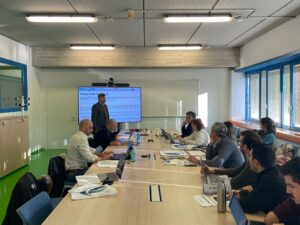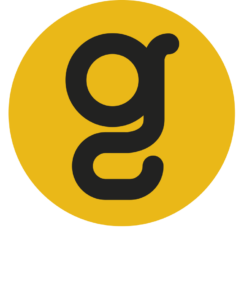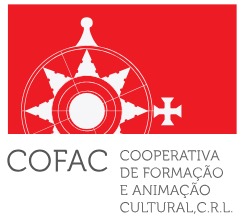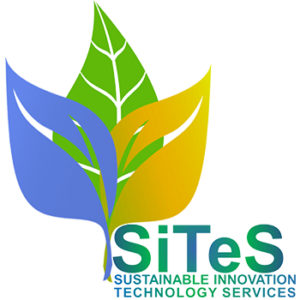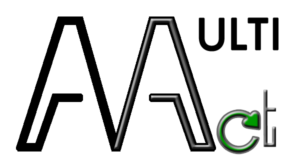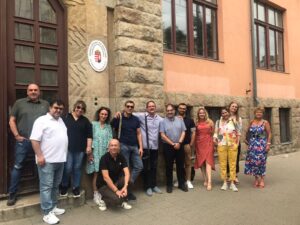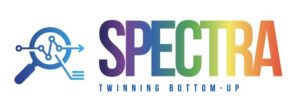e^4
e^4 — tools in higher Education for an Embodied & creative Energy Education
Programme and Call for Proposals
ERASMUS PLUS – Call 2021 Round 1 KA2
KA220-HED – Cooperation partnerships in higher education
Open project
Brief description
Given the urgency of environmental and technological change in the face of challenges such as climate change, the main need recorded is raising awareness of possible solutions and necessary measures, also given the challenge of educating the coming generation in these matters.
We feel the urgent need for both supporting and reforming teacher education (for teachers of primary school and lower secondary or middle school levels) at academic institutions in matters concerning energy (energy solutions, energy and the environment, energy and society).
On this scenario, we intend to create:
- Innovative materials for teacher education in the field of energy technology.
- A network of academic institutions and external stakeholders dealing practically with matters concerning energy.
- A dedicated web platform were both learning materials for university courses and material, knowledge, and opportunities provided by the network are available.
Objectives
- Develop and/or enrich higher education curricula (in teacher education for primary and lower secondary school levels), following a didactic approach based on “tools of imagination” like storytelling, gamification, embodied simulation, digital simulation, and play to facilitate science communication;
- train academics charged with teacher education in innovative pedagogies and approaches to teaching science courses (including the use of appropriate aids and materials);
- promote learning and teaching partnerships between universities and the private energy sector;
- upskill future science teachers with new approaches to teaching to encourage girls for scientific carriers and fight against gender stereotypes in scientific and engineering careers;
- support the strengthening of science skills of EU citizens and professionals to make conscious choices and use creativity and a critical mindset to contribute to lower CO2 emissions towards EU 2050 targets.
Main Activities
- Creating guidelines for a Network of academic and private/public partnerships.
- “Imaginative course” Curriculum for teaching through imaginative tools.
- Interactive web platform supporting the Curriculum and the Network.
Results
- Increased competences and skills of partners’ staff.
- Increased competences in teachers of primary and secondary schools: 20 teachers (5 for each of the 4 countries involved) will participate in a transnational training session to get acquainted with the offline workshop activities proposed.
- 30 prospective teachers in each country will join local testing and implement full testing of the blended course (web and software-based activities plus workshop activities). We expect 75% to 85% of participating teachers to be women. Thanks to local testing the project will reach about 1000 students in the 4 countries.
- 300 participants will be interviewed as part of project assessment.
We expect the project to produce a change in teaching approaches at all levels:
- At university level, improving academics’ science teaching approaches, also blending online and in presence courses, improving the efficacy of their courses both at university and jointly with the private and public energy sector.
- At school level, helping student teachers and in-service teachers to be more motivated for and engaged in new imaginative teaching methods, will lead to innovation in school curricula. Teachers will be able to adapt their teaching approaches to the new generation’s learning capacities and skills needs through the application of creativity fostered by imaginative tools.
Lead partner
LIBERA UNIVERSITA’ DI BOLZANO (Italy)
Partners
– InEuropa Srl – Italy
– Uniwersytet Mikolaja Kopernika W Toruniu – Poland
– Esciencia Eventos Cientificos Sl Aragón Zaragoza – Spain
– Universitat de Valencia – Spain
– Sustainable Innovation Technology Services Ltd Mid-West Castletroy – Ireland
– Università degli Studi Di Modena e Reggio Emilia – Italy
– Dublin City University – Ireland
Duration
The project will last 36 months (28 February 2022 – 27 February 2025)
Website
https://energy4teachers.eu/
Budget
The project received a grant of € 395 506,00
Flyer_e4_stakeholder engagement Flyer_e4
Project NEWS:
Share this with a friend
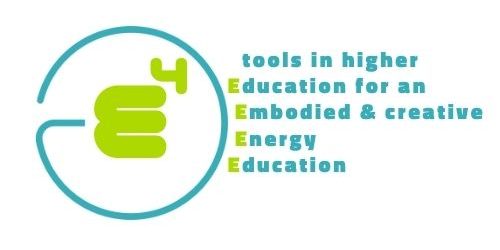
Other Projects

Overview
FREECOVER is a cutting-edge research initiative funded under the Horizon Europe MSCA Staff Exchanges program (Grant Agreement :101182579). Running from January 1, 2025, to December 31, 2028, the project brings together academic and industrial partners across Europe and beyond to address one of the most pressing challenges of our time: the sustainable recycling of Rare Earth Elements (REEs).
REEs are critical for green technologies such as renewable energy systems and electric mobility. However, their supply faces significant risks due to limited natural resources and high environmental costs associated with traditional extraction methods. FREECOVER aims to develop an eco-friendly, innovative hydrometallurgical process to recover REEs from metallic waste, contributing to a circular economy and a sustainable future.
Objectives
FREECOVER’s mission is to revolutionize the recycling of REEs by achieving the following objectives:
- Sustainability: Develop a green recycling process using natural, eco-friendly materials.
- Circular Economy: Strengthen the REE supply chain by creating closed-loop recycling systems.
- Innovation: Demonstrate the effectiveness of novel materials, such as ionic liquids and natural polymers, in REE recovery.
- Knowledge Exchange: Foster interdisciplinary and cross-sectoral collaboration through international secondments and training activities.
Key Innovations
- Eco-Friendly Processes: Utilize natural acids and low-cost minerals to extract and separate REEs with minimal environmental impact.
- Advanced Materials: Develop polymeric membranes supported by ionic liquids for efficient REE separation.
- Water Recycling: Implement closed-loop water systems to reduce waste and enhance sustainability.
- Catalyst Development: Transform metal-loaded adsorbents into catalysts for wastewater treatment, creating additional value streams.
Consortium
The FREECOVER consortium consists of 10 partners, including leading universities, research institutions, and companies from Europe and Cuba. These partners collaborate to bridge the gap between academic research and industrial application, ensuring real-world impact.
Impact
FREECOVER will:
- Provide sustainable solutions to critical raw material shortages.
- Enhance Europe’s competitiveness in green technologies.
- Reduce the environmental footprint of REE extraction and recycling.
- Promote global collaboration and knowledge sharing in sustainable innovation.
SITES’ Role in FREECOVER
As a key partner, SITES leads Work Package 5 (WP5): Communication and Dissemination. Our responsibilities include:
- Developing the project’s Communication, Dissemination, and Exploitation (C&D&E) strategy.
- Managing the project website and social media platforms.
- Organizing training events, Science Cafés, and outreach activities to engage stakeholders and promote FREECOVER’s objectives.
FREECOVER KICK-OFF MEETING
ON 16th January 2025, at the University of Udine, the Polytechnic Department of Engineering and Architecture hosted the kickoff meeting of the highly anticipated interdisciplinary project FREECOVER at the “Rizzi” Campus. The event saw the participation of SITES, represented by Alessandro Tiraborelli, alongside other key stakeholders and experts contributing to this groundbreaking initiative.
Stay Updated
Follow FREECOVER’s journey toward sustainable innovation:
- Website
- Social Media
Together, we’re building a sustainable future by redefining REE recycling.
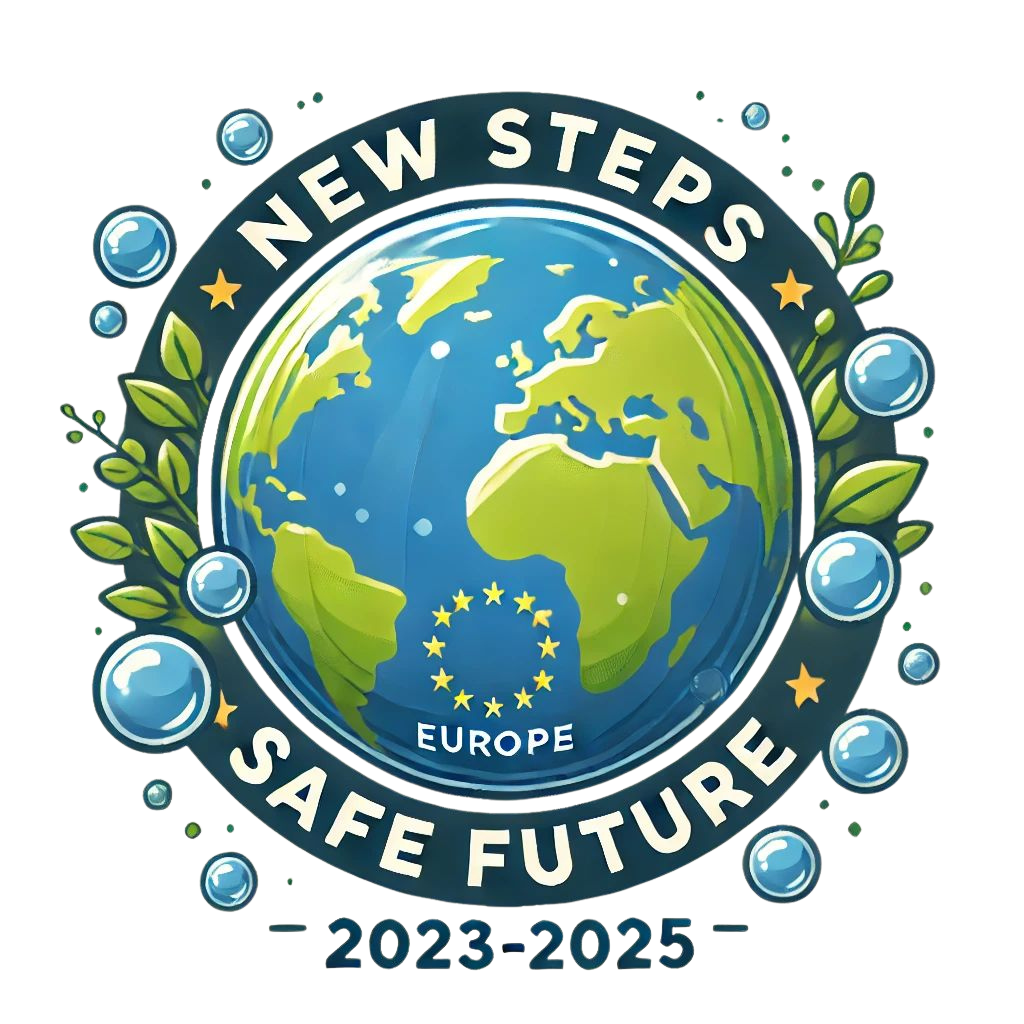
New Steps Safe Future
Project partners
- CIFP Hosteleria LHII (Spain)
- Multi-Act STD (Türkiye)
- Rödabergsskolan (Sweden)
New Steps Safe Future aims to contribute to reducing the carbon footprint to fight against climate change. We aim to support the development of teachers, school leaders, and teaching professions with activities planned according to the STEAM approach. We want to provide students with STEM skills that are scientifically based, based on inquiry and collaboration, and emphasize process evaluation.
At the end of the New Steps Safe Future project, a data guide, module guide, web portal, mobile application, and policy guide will be produced with activities aimed at the goals and objectives of the project. With these results, teachers, school leaders, teaching professionals, and students will gain STEM skills to fight against climate change and reduce the carbon footprint at European, national, and local levels. 168 teachers and 120 students will be involved in project activities, and 247 students in multiplier events.
The New Steps Safe Future project wants to carry out activities to reduce the carbon footprint of our students in order to fight against climate change. The project objectives, activities, and intellectual outputs are planned to fight against climate change and reduce carbon footprint, which are the priorities of the Erasmus+ program, and to increase interest in the environment, science, technology, engineering, and mathematics (STEM) skills and the STEAM approach, to support teachers, school leaders, and teaching professionals. We want to realize the project at the school level together with our partners by receiving funding support for the project. By creating our activities with the STEAM approach, we aim to provide teachers and students with scientific thinking-based, inquiry-based, problem-solving skills, collaborative, interdisciplinary learning, contextual learning, and process evaluation skills. These skills will equip teachers and students with competencies to fight against climate change.
The New Steps Safe Future project target groups are students aged 13-18, teachers, school leaders, and professions in education and training. Other target groups include municipal officials, government officials, university professors, young people, families, the public, digital/environmental entrepreneurs and employees, experts, and representatives in sectors such as agriculture, food, industry, transportation, and energy. Within our partnership structure, PT (University) consists of university employees, IE (SME) consists of professional experts, TR (NGO) consists of teachers and students between the ages of 14-20, HU (School) consists of students between the ages of 14-18, ES (School) consists of students between the ages of 14-18, and SE (School) consists of students between the ages of 13-17. Our aim is to leave an impact on climate change and education, as well as on relevant families, businesses, energy, transportation, industry, and agriculture sector representatives, start-ups, universities, municipalities, and youth centers at local, national, and European levels.
The goals of the New Steps Safe Future project are to carry out activities to fight against climate change and produce a data guide, module guide, web portal, mobile application, and policy guide. Within the scope of the partnership and beyond, dissemination activities at local, national, and European levels and activities to expand the impact of the project results will be carried out.
New Steps Safe Future Project Kickoff Meeting
The kickoff meeting took place on 2nd and 4th June 2024 in Budapest. The Project Start Date was 01/01/2024. The Project total Duration is 24 Months. The Project End Date is 31/12/2025.
SITES’ Role in the Project
The main roles of the SITES company in the New Steps Safe Future project are developing a mobile application, which will include the modules produced under the leadership of IE and with the support of other partners. Four people from each partner will be involved in the development of the modules. They will invite stakeholders of the project to LTTA at the local/regional level, arrange climate change events for the local community, send project result reports via email to stakeholders' contact persons, share on the official website, and prepare and manage the risk management plan.
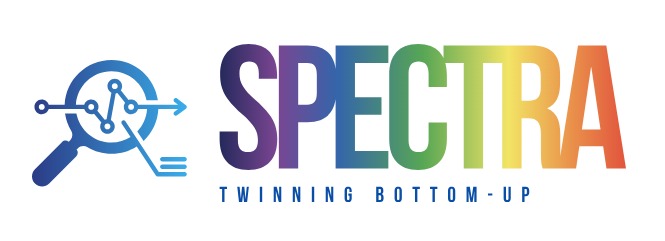
SPECTRA
The SPECTRA project aims to enhance the research and innovation (R&I) capabilities of AUTH in Greece, focusing on Water Quality and Food Safety, Quality & Traceability (WQ&FSAT) to address climate change-related challenges. By combining research, training, and collaboration, SPECTRA will boost scientific excellence, facilitate knowledge transfer, and improve networking both locally and internationally within the European Research Area (ERA). The project seeks to strengthen AUTH’s scientific standing, support the development of skilled researchers, and promote industry-academia partnerships. Expected outcomes include enhanced water quality and food safety, increased consumer confidence in Greek food products, support for monitoring and decision-making, and economic benefits for regional businesses through innovation, new product development, and job creation.
SITES Role
SITES plays a pivotal role in SPECTRA, bringing private-sector expertise in innovation consultancy, eco-innovation strategies, and sustainable development trends. Their contributions include high-level strategic market research, monitoring and evaluation, and strategic planning, ensuring that project outcomes are economically viable and widely applicable. Leading the economic component (WP6), SITES focuses on communicating and exploiting outputs from case studies, managing outreach, and promoting responsible research and innovation (RRI), open science practices, and gender inclusivity. This multifaceted role supports the effective dissemination, commercialization, and long-term impact of SPECTRA’s research innovations.

